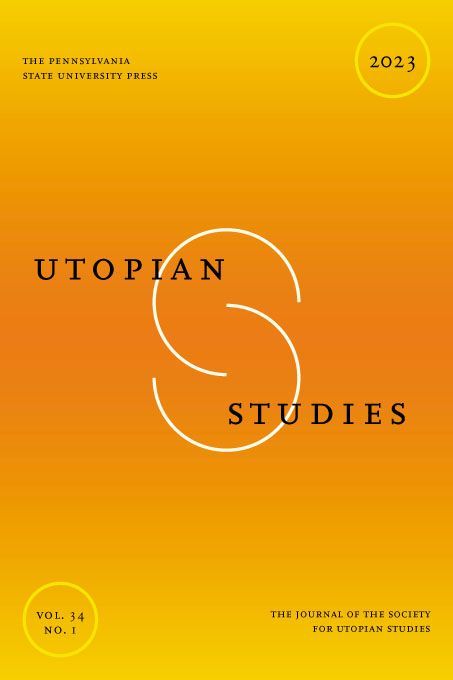Vol. 34, N°1
The first 2023 issue of American journal Utopian Studies contains, in its "Book Reviews" section, my review of the essay Fabuler la fin du monde. La puissance critique des fictions d'apocalypse (2019) by Jean-Paul Engélibert, which details the way in which apocalypse stories have shifted, over time, from being written from a religious outlook to relying on physical and particularly environmental and climatic inspirations. It then shows the different ways in which the first modern apocalypse stories, in the 19th and early 20th centuries, served as forerunners to today's works devoted to climate change and other current issues. Finally, Engélibert's work strives to prove that by creating an imaginary space of post-apocalyptic tabula rasa (a kairos opposed to the chronos of normal pre-apocalyptic life), apocalypse fiction can help generate pragmatic and dynamic thinking on new conditions and the actions to be carried out from a new context, and therefore motivation rather than discouragement, or what Michel Deguy called L'Énergie du désespoir [The Energy of Despair] (1998).
To that effect, Engélibert mainly studies Jean-Baptiste Cousin de Grainville's Le Dernier homme (1805), Mary Shelley's Frankenstein (1818), Émile Souvestre's Le Monde tel qu'il sera (1846), Didier de Chousy's Ignis (1883), Robert Merle's Malevil (1972), José Saramago's Blindness (1995), Antoine Volodine's Minor Angels (1999), Don DeLillo's Cosmopolis (2003), Cormac McCarthy's The Road (2006), Céline Minard's Le Dernier monde (2007), Davide Longo's The Last Man Standing (2010), Margaret Atwood's MaddAddam novel trilogy (2003, 2009, 2013), the films On the Beach (1959) by Stanley Kramer, Melancholia (2011 ) by Lars von Trier, 4:44 Last Day On Earth (2012) by Abel Ferrara, and Ghost in the Shell (1995) by Mamoru Oshii, the short story “The Machine Stops” (1909) by E.M. Forster, the drama trilogy The War Plays (1985) by Edward Bond, and the first season (2014) of the television series The Leftovers (2014-2017) by Damon Lindelof and Tom Perrotta.
The journal's review on the publisher's website:
https://www.psupress.org/journals/jnls_utopian_studies.html
The issue's page on digital platform Scholarly Publishing:
https://scholarlypublishingcollective.org/psup/utopian-studies/issue/34/1
Engélibert's book's page on its publisher's website:
https://www.editionsladecouverte.fr/fabuler_la_fin_du_monde-9782348037191







